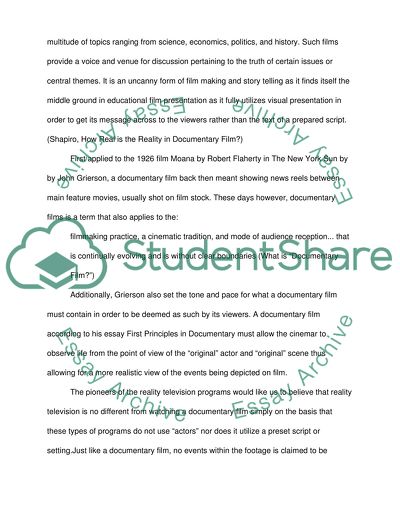Cite this document
(“Comparison of Reality Shows and Documentary Shows / Films Essay”, n.d.)
Retrieved from https://studentshare.org/visual-arts-film-studies/1394926-comparison-of-reality-shows-and-documentary-shows-films
Retrieved from https://studentshare.org/visual-arts-film-studies/1394926-comparison-of-reality-shows-and-documentary-shows-films
(Comparison of Reality Shows and Documentary Shows / Films Essay)
https://studentshare.org/visual-arts-film-studies/1394926-comparison-of-reality-shows-and-documentary-shows-films.
https://studentshare.org/visual-arts-film-studies/1394926-comparison-of-reality-shows-and-documentary-shows-films.
“Comparison of Reality Shows and Documentary Shows / Films Essay”, n.d. https://studentshare.org/visual-arts-film-studies/1394926-comparison-of-reality-shows-and-documentary-shows-films.


